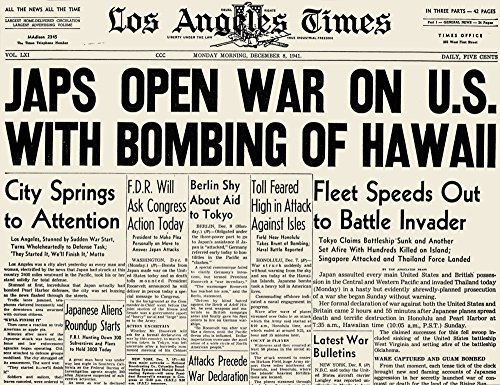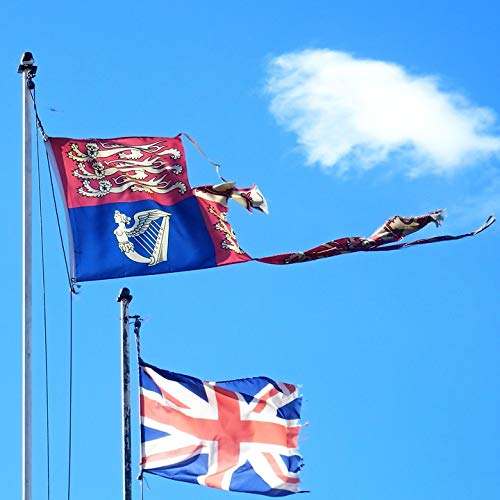The attack on Pearl Harbor in 1941, like the terrors of 9/11 in 2001 and the assassination of John F. Kennedy in 1961 are traumatic events whose aftereffects reach into the lives of future generations. Such events are often marked at the time they occur by the widespread feeling of "this changes everything.”
The Japanese raid on Pearl Harbor caught the U.S. by surprise on “a day which will live in infamy,” President Franklin D. Roosevelt declared, thrusting the nation into a long, difficult war against tyranny.
Ending its neutrality, the U.S. declared war on Japan a day later and Nazi Germany declared war on the United States four days after. Life was never the same for Americans, or the rest of the world community.
Similarly, the terrorist attacks of September 11, 2001, and the murder of a popular President caught United States citizens off-guard, leading to conflicts and turmoil and ultimately changing the political and cultural course of the nation.
Catastrophic events that affect whole communities of people and sometimes carry over into subsequent generations are referred to by psychologists and sociologists as "historical traumas." The Holocaust in Europe, the genocide against Native Americans in the 19th century, and the collapse of Roman, Persian and Greek empires in earlier generations were all traumatic experiences leaving physical, emotional, social and spiritual scars on the affected communities. The aftereffects of the Civil War in the U.S. are still present 150 years later.
Some events cause a kind of global trauma that transforms the way we think of ourselves and the world at large: the 1914 sinking of the Titanic, the 1945 bombing of Hiroshima, and the 1989 fall of the Berlin Wall. The crash of the Hindenburg, Hurricane Katrina, the Vietnam War and the Challenger explosion were similarly made larger in scope and impact by mass media.
These events are more common and their effects are longer-lasting in the presence of newspaper headlines, radio and television broadcasts, and worldwide social media networking. The eruption of the volcano Krakatoa in 1883 was arguably one of the most important global disasters, altering climates worldwide for the next five years, yet it took months and years for its impact to be recognized. By contrast, the effects of the political tsunamis known as the Arab Spring in 2011, Brexit in the UK, and the US presidential election of 2016 and its aftermath have been tracked and analyzed and cognitively digested moment-to-moment by individuals and groups throughout the world. And the consequences of such "real-time" global awareness is being tested for the first time.
Historical trauma
Historical trauma is a cumulative emotional and psychological wounding caused by a massive group trauma experience. It may last a lifetime or extend across generations.
It may lead to substance abuse as an attempt to numb the pain, or cause other self-destructive behaviors like suicidal thoughts, depression, anxiety, low self-esteem, anger, and difficulty recognizing and expressing emotions.
Historical unresolved grief can extend over generations, as the traumas of one generation can be passed on to their children and their children's children.
Native Americans, for instance, endured physical, emotional, social, and spiritual genocide for over 500 years. Many Native Americans seem to have overcome the traumas of their history and are healthy and economically self-sufficient, but a significant proportion of Native people are not faring as well.
Some events cause a kind of global trauma that transforms the way people think about themselves and the world at large:
The 1914 sinking of the Titanic, the 9/11 attack on the World Trade Center, the January 6 insurrection.
Are these traumas more common or longer-lasting in a mass-mediated era?


